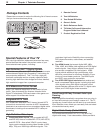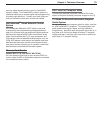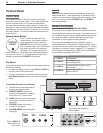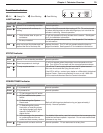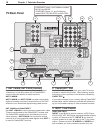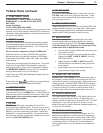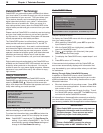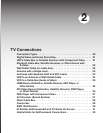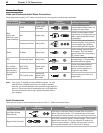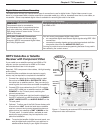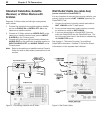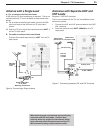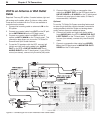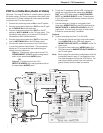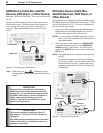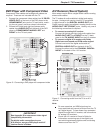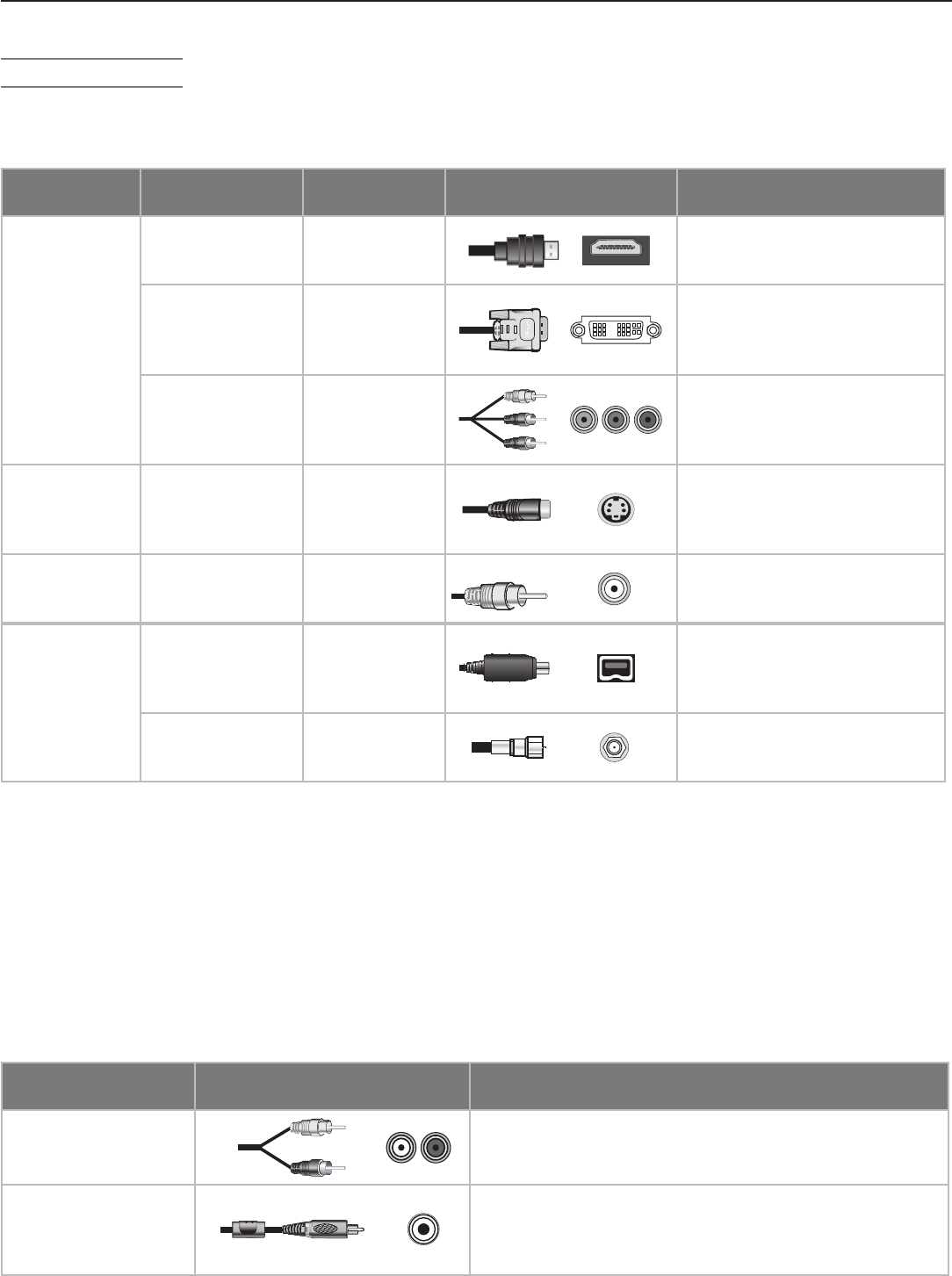
20 Chapter 2. TV Connections
Connection Types
Video and Combined Audio/Video Connections
These descriptions apply to TV video only and do not cover signals from personal computers.
Picture Quality
(most sources)
Name Signal Type
Figures
(not to scale)
Additional Information
Best
(carry high-
definition video
when available)
HDMI
Digital audio
and video
Carries digital audio and
uncompressed digital video on
a single one-way cable.
DVI
Digital video
Carries uncompressed digital
video alone on a single one-way
cable; requires separate audio
connections.
Component Video
Analog video
Y Pb Pr RCA-style connectors
are colored green, blue, and red.
Carries analog high-definition
and standard-definition signals.
Good S-Video
Analog video
Carries analog standard-defini-
tion signals.
Provides better
quality video than composite or
RF coaxial video.
Fair Composite Video
Analog video
RCA-style connector, usually
colored yellow.
Carries analog
standard-definition signals.
Fair to Best
(depending on
source; carry
all qualities of
signals)
IEEE 1394
(FireWire®)
Digital audio
and video
Carries compressed digital
video and audio as well as
device control signals on a
single two-way cable.
RF Coaxial Video
Analog and
digital audio
and video
Carries audio and video on a
single cable.
Note: Only some TV signals are high-definition signals. To view
high-definition programming from your cable or satellite
provider, you must subscribe to the provider’s high-definition
service. Some over-the-air broadcasts are in high-definition
and can be received with a high-quality antenna suited to
your location.
Audio Connections
There are two types of audio connections used on this TV. Refer to the table below.
Audio Connection
Figures
(not to scale)
Additional Information
Left/Right Analog
Stereo Audio
RCA-style connectors usually colored white for left and
red for right stereo audio. For monaural sound (all speak-
ers playing the same sound), use only the white connector.
Digital Audio (Coaxial)
RCA-style connector usually colored orange. Use to send
digital audio from the TV to your digital A/V receiver for
surround-sound effects. Usually the only audio connec-
tion required between the TV and the A/V receiver.



